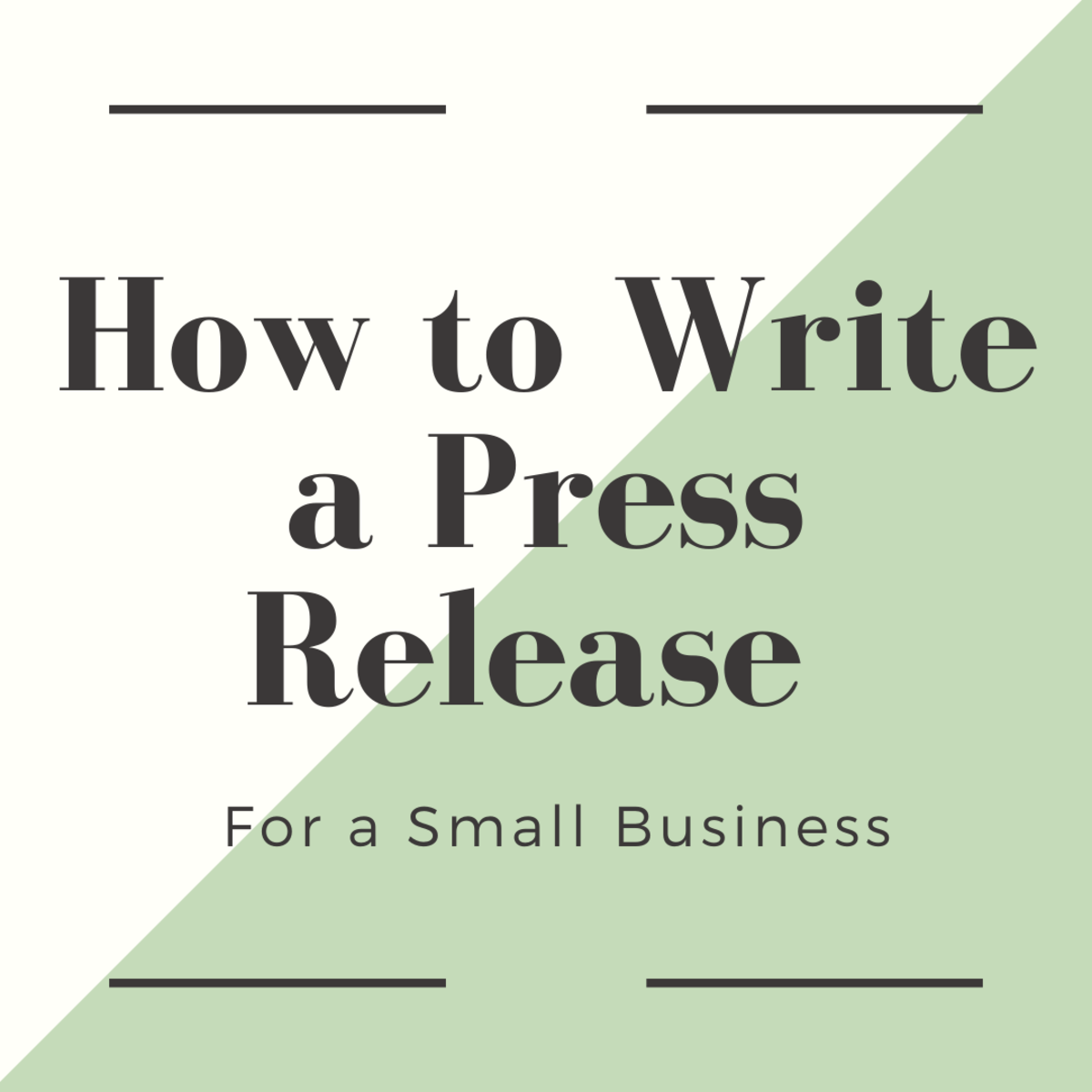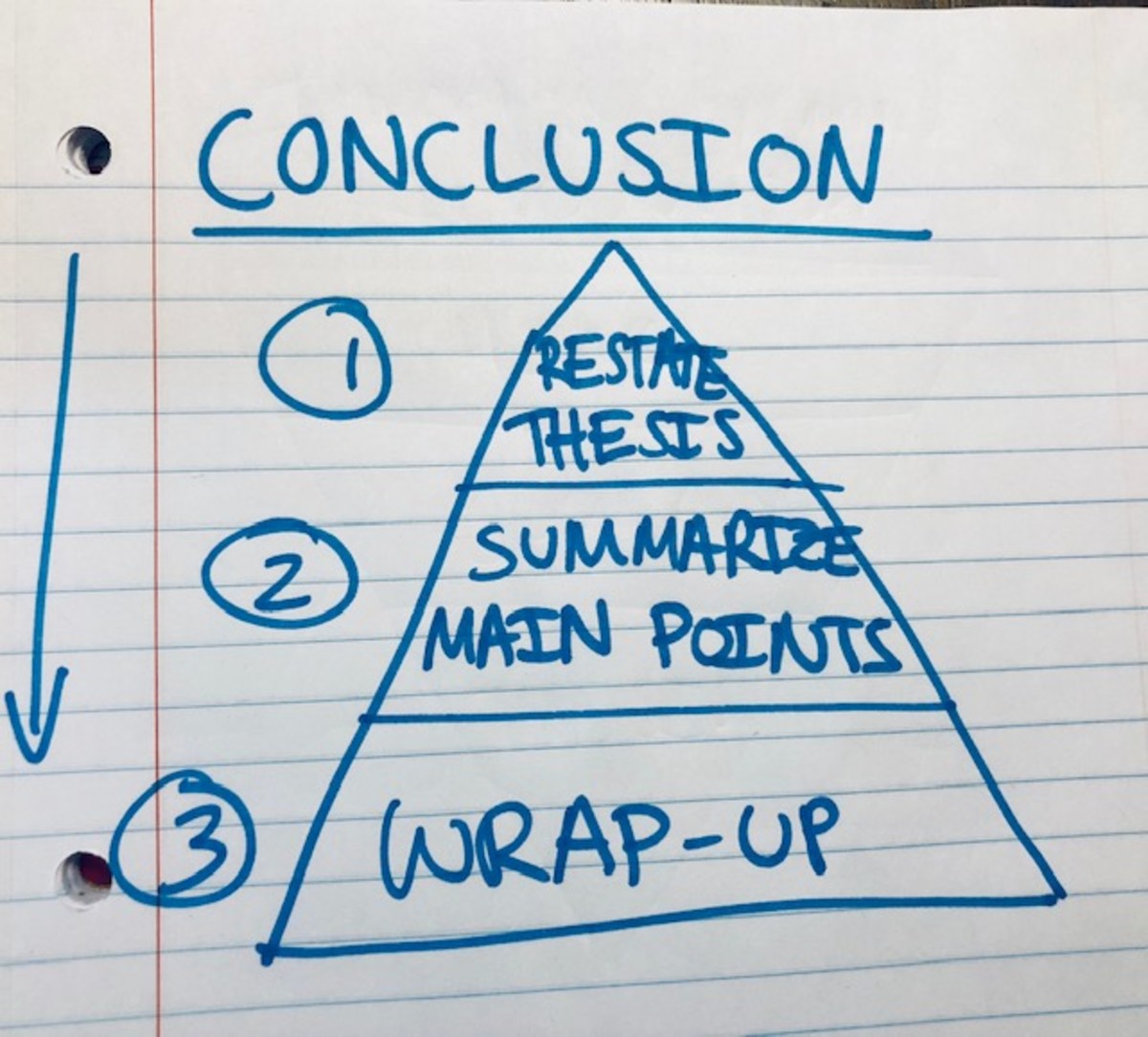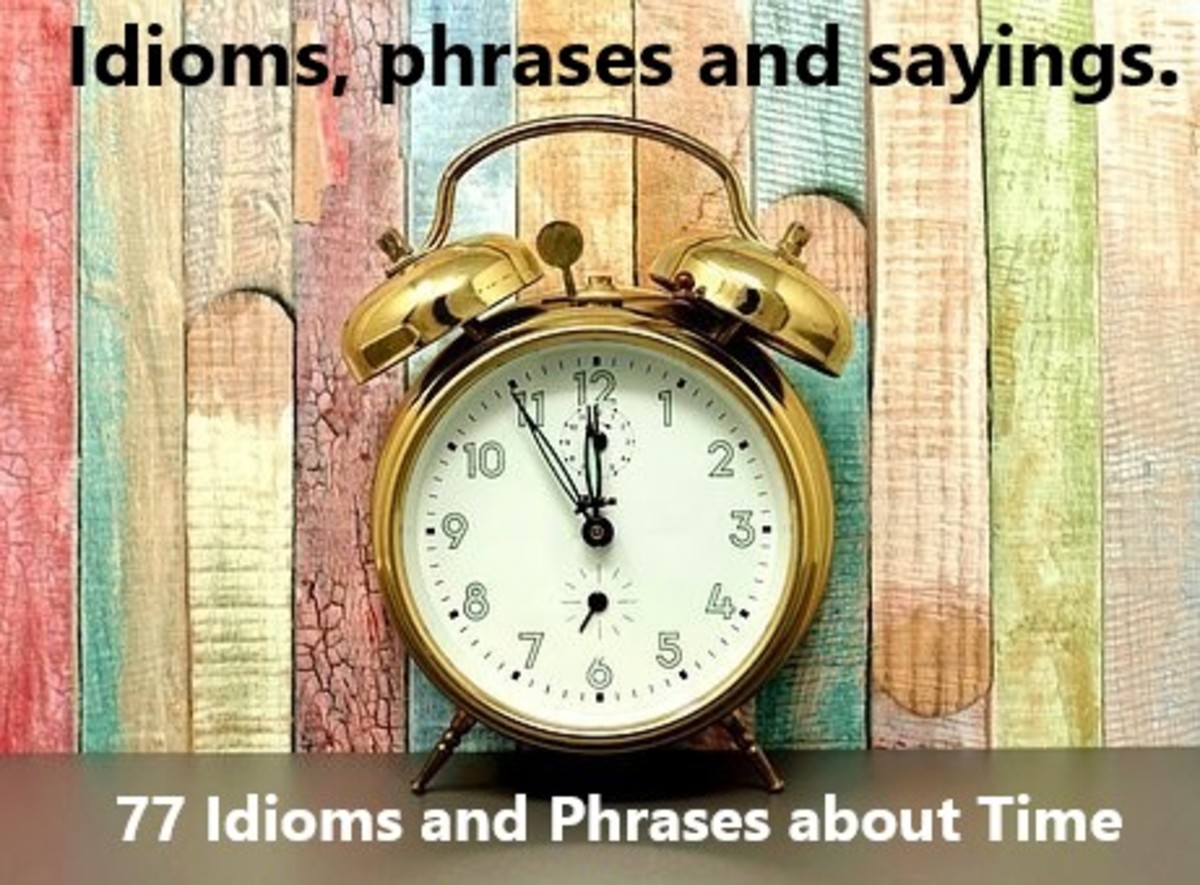Inverted Pyramid Writing Style
Oh, So That's What Its Called
It is often traced to the advent of the telegraph and its virtual 'instant' messaging.
Previous to the wireless transmission of data, there was no reason to scrimp
on words.
Even if one were reporting on a battle of a war, it took weeks for the information to reach the newspaper, so writing a virtual novel, with all the background, personal reflections and lofty language was standard.
People really read newspapers, because there was a great deal to read.
With the ability to transmit data immediately, the less words the better and the most important point came first.
Hence instead of giving a great deal of information leading up to the event, the event came first then was decorated by details.
Hence the term, Inverted Pyramid.
The Impact
The long drawn out story, with all the details, from the colour of the sky to the smell of the grass with the last paragraph pulling the threads together has been slowly abandoned for the Inverted Pyramid style.
One can see, when reading older works how long they take to get to the point.
This is because in olden days when people sat down with a book they expected to be sitting for a few hours.
There was no phone, no television, no radio, and of course, no Internet.
The person who was reading expected every detail, and would slowly wind his or her way through the information relishing the clever turn of phrase, committing passages to memory.
As the telegraph changed the time between event and report from weeks to minutes, people became accustomed to that style and authors began to follow suit.
Often they would begin not with a long detailed full description of a place and the people in it, but starting in the middle of a conversation and adding details as needed.
Hence a book, such as The Key to Rebecca begins with the
"The third camel died at noon."
Not with a description of where the protagonist was, why he was there, who he was and what he was doing.
The reader is flung into this moment without precursor. The subsequent details tie into that first sentence so that where and when and why and who are revealed.
The Internet
As abbreviated as the Inverted Pyramid the style is, advent of online writing has given birth to tiny short stories, often called flash fiction, where everything is said within a page or less.
Many bemoan the death of language.
In olden times there were so many different ways of saying something. There were so many adverbs and adjectives and turns of phrases. Today, these have been replaced with the insertion of an obscene word or two, as well as the various abbreviations, and acronyms.
How one makes the point is unimportant just as long as the response is instant.
Today, one wouldn't write; "Sitting on my balcony, viewing the blueness of the sea, hearing the chirping of birds, so far from the busy metropolitan world."
Today, more likely; "I saw the boat capsize."
Descriptions have been truncated, and emotions squashed.
Scenes aren't set.
In the first example the reader would be feeling calm and peaceful, imagining the sea, hearing the birds, so that when;
"I saw a small rowboat bouncing on the waves, I wondered why the crew didn't turn it into the current when I saw it capsize."
The reader would not be expecting it.
In the second example the reader would focus on the boat, wonder if there was a crew aboard, (which would be answered in the next sentence or so) and where the narrator was, (which would drip out at some point.)
Writer's Quandary
Does one write in this style, getting to the point virtually without the writing?
Or does the writer maintain the scene setting, the pulling the reader into the moment with turns of phrases?
Is there a market for the old fashioned style, or is the Inverted Pyramid how it is done?









